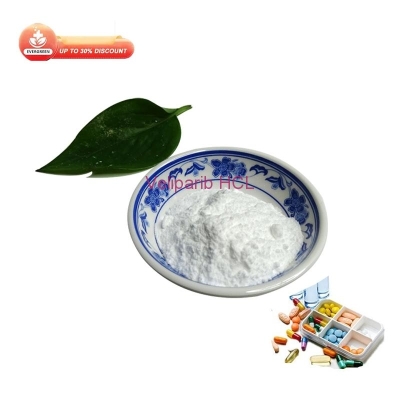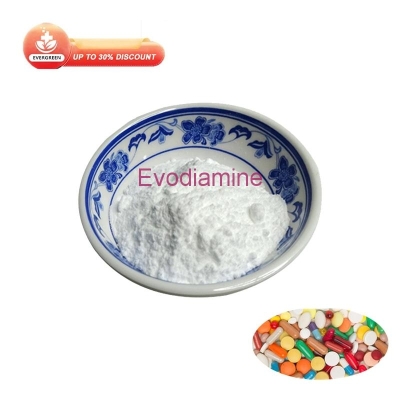-
Categories
-
Pharmaceutical Intermediates
-
Active Pharmaceutical Ingredients
-
Food Additives
- Industrial Coatings
- Agrochemicals
- Dyes and Pigments
- Surfactant
- Flavors and Fragrances
- Chemical Reagents
- Catalyst and Auxiliary
- Natural Products
- Inorganic Chemistry
-
Organic Chemistry
-
Biochemical Engineering
- Analytical Chemistry
- Cosmetic Ingredient
-
Pharmaceutical Intermediates
Promotion
ECHEMI Mall
Wholesale
Weekly Price
Exhibition
News
-
Trade Service
In recent years, immunotherapy has been advancing all the way, which has changed the traditional pattern of tumor treatment, especially in combination with chemotherapy, which has made a huge breakthrough in lung cancer.
Now even in advanced lung cancer patients, there are 25%-30% of patients.
A longer survival time can be obtained through a combination treatment plan.
Recently, a series of blockbuster clinical studies have confirmed that in the field of nasopharyngeal carcinoma, immunotherapy will become the next trend
.
Before the age of immunotherapy, patients with advanced recurrence and metastasis of nasopharyngeal carcinoma, even with the best chemotherapy drugs, had an average tumor control time of only 7 months and an average survival time of only about 2 years
.
"Finding new treatment options has become an urgent need for patients with advanced nasopharyngeal cancer
Professor Fang Wenfeng from the Cancer Center of Sun Yat-sen University introduced that as early as 2014, a clinical study found that nasopharyngeal carcinoma is actually full of lymphocytes.
The entire cancer nest is like "floating in the ocean of lymphocytes", but it can be automatically identified and eliminated.
However, the function of the tumor was lost.
Later, it was further discovered through mechanism research, mainly because there are a large number of PD-L1 molecular expressions on tumor cells.
PD-L1 can bind to receptors on T cells, thereby inhibiting the activity of T cells.
In a sense, it is the brake of T cell activity, which inhibits the activity of T cells, making it unable to effectively recognize and kill tumor cells
.
Now everyone is very familiar with PD-1 or PD-L1 monoclonal antibodies that block PD-L1 from binding to receptors on T cells to restore the activity of T cells.
With PD-1 /PD-L1 monoclonal antibody treatment The continuous extension of nasopharyngeal cancer patients has gradually benefited.
Recently, on June 24, Beijing time, THE LANCET Oncology published the full text online "Carrelizumab combined with GP chemotherapy in the first-line treatment of recurrent/metastatic nasopharyngeal carcinoma study (CAPTAIN-1ST) Research)” results show that for patients with advanced nasopharyngeal carcinoma, carrelizumab combined with GP chemotherapy has achieved amazing results in the first-line treatment, and the survival period has been prolonged.
At the same time, China officially approved the GP program combined with card on June 8.
Relizumab has become the first-line standard regimen for recurrent and metastatic nasopharyngeal carcinoma, and at the same time as a first-level recommendation in the 2021 version of the CSCO guidelines
.
Professor Zhang Li
Professor Zhang LiProfessor Zhang LiCarrelizumab combined with GP chemotherapy, patients with advanced nasopharyngeal cancer can have a longer survival time
Carrelizumab combined with GP chemotherapy, patients with advanced nasopharyngeal cancer can have a longer survival timeTraditional chemotherapy regimens cannot improve the survival time of patients with advanced nasopharyngeal cancer.
The remaining measures that can change the efficacy of nasopharyngeal cancer patients are to improve the patient’s own tumor surveillance ability through immunotherapy.
After the tumor is eliminated through chemotherapy, Mobilizing one's own immunity to prevent tumor rebound means that patients can survive longer
.
Professor Fang Wenfeng
Professor Fang Wenfeng Professor Fang Wenfeng"In fact, I have tried to verify the effectiveness and safety of this method in more than 20 patients, but because of the small sample size, it is not enough to prove whether immunotherapy combined with chemotherapy can really benefit patients with advanced nasopharyngeal cancer.
"Professor Zhang Li said
.
Professor Yang Yunpeng from Sun Yat-sen University Cancer Center said that, led by the Sun Yat-sen University Cancer Center, a total of 263 patients were enrolled in the entire study.
A total of 28 centers across the country participated in the study.
Professor Yang Yunpeng said that in the first-line treatment of recurrent/metastatic nasopharyngeal carcinoma, the GP regimen has achieved a major leap compared with the previous PF regimen, while the combination of carrelizumab and GP has achieved the second leap
.
Now, THE LANCETOncology publishes the full text of the CAPTAIN-1ST study online.
Professor Yang Yunpeng
Professor Yang Yunpeng Professor Yang YunpengAfter immune drugs are included in medical insurance, more cancer patients will benefit
After immune drugs are included in medical insurance, more cancer patients will benefitIt is reported that in addition to the combined treatment of tumors with chemotherapy, the combination of immunotherapy can also be combined with anti-angiogenic drugs, another immunotherapy drug, and radiotherapy.
Screenshot of the new conference
Screenshot of the new conferenceOnline and offline experts answer questions from reporters
Online and offline experts answer questions from reportersProfessor Li Jingao from Jiangxi Cancer Hospital said that in the past, immunotherapy drugs were relatively expensive.
Especially for tumors that cannot be cured by traditional treatment methods, such as recurrence and metastasis, even after recurrence and metastasis have undergone two-line and third-line treatment, immunotherapy will also make such a part of purely palliative treatment patients hopeful to be cured.
Leave a message here







